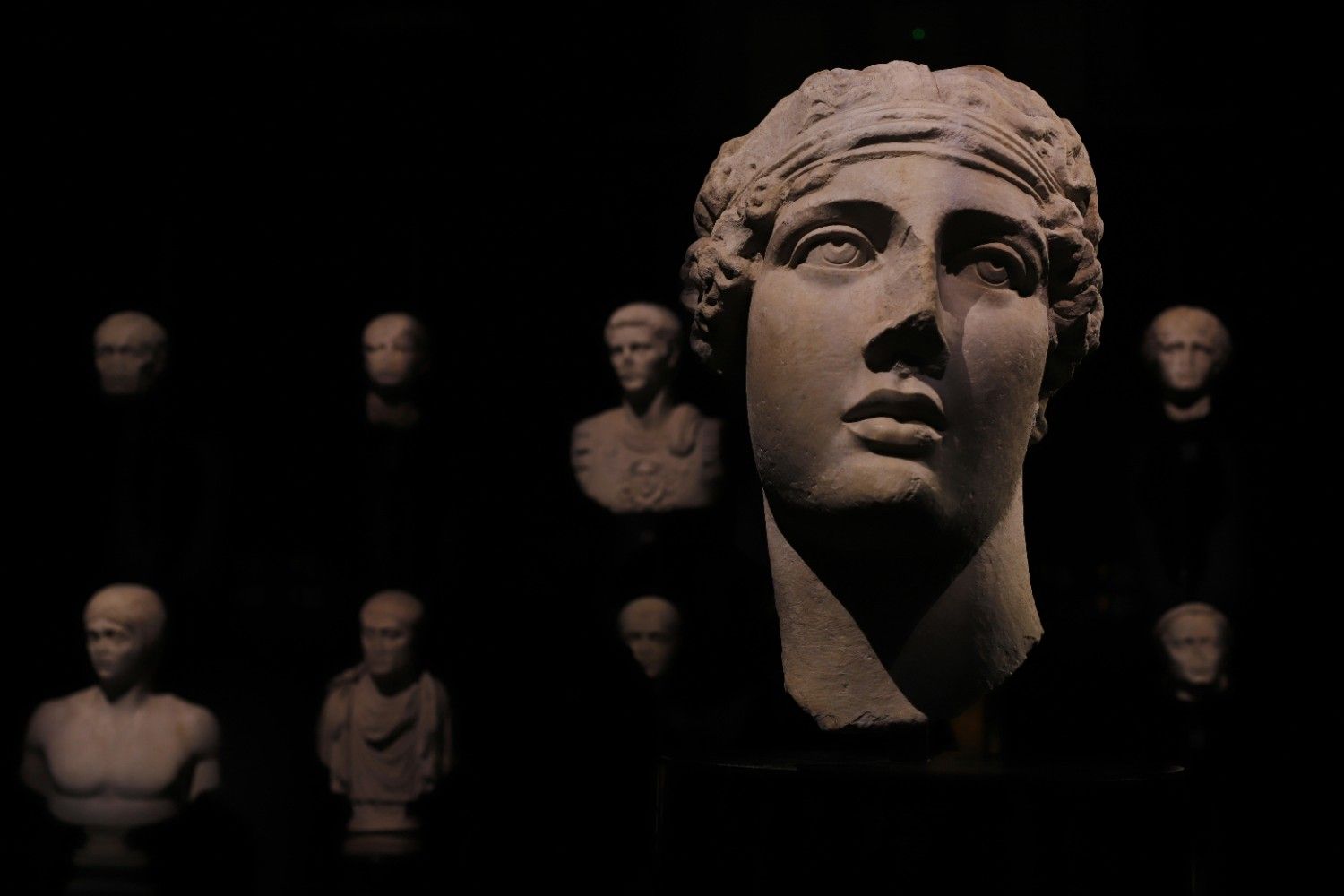What if the world you see is not real? What gives a life meaning? Are your choices truly your own? For centuries, these questions were debated in dusty lecture halls and ancient texts. Today, they are explored in the pulsing glow of a cinema screen and the quiet rustle of a turning page. Popular culture has become philosophy's most accessible and exciting classroom. Films and novels are not just escapism; they are elaborate thought experiments that take abstract ideas about reality, morality, and meaning and give them a human face. This article is your guide to seeing these hidden depths, revealing how your favorite stories are part of a conversation that began thousands of years ago.
Key Points
- Popular culture, especially films and literature, serves as a modern vehicle for exploring complex philosophical questions, making them accessible and emotionally resonant for a wide audience (1).
- Films like "The Matrix" directly engage with ancient questions about the nature of reality, echoing Plato's "Allegory of the Cave" and René Descartes' skepticism about the senses (2).
- The science fiction genre is a rich ground for exploring the "Free Will vs. Determinism" debate, with films like "Gattaca" examining genetic determinism and "Minority Report" questioning whether knowledge of the future negates free choice (3).
- Existentialist themes, particularly the search for meaning and identity in a seemingly absurd world, are central to works like "Blade Runner" and "Fight Club," which ask what it truly means to be human (4).
- Superhero films, such as "The Dark Knight," often function as complex ethical thought experiments, pitting different moral philosophies, like deontology, utilitarianism, and nihilism, against each other in high,stakes scenarios (5).
Introduction: The Modern Agora
What if the world you see is not real? What gives a life meaning? Are your choices truly your own? For centuries, these questions were debated in dusty lecture halls and ancient texts. Today, they are explored in the pulsing glow of a cinema screen and the quiet rustle of a turning page. Popular culture has become philosophy's most accessible and exciting classroom. Films and novels are not just escapism; they are elaborate thought experiments that take abstract ideas about reality, morality, and meaning and give them a human face. They allow us to experience the consequences of these ideas, to feel the weight of a philosophical dilemma rather than just thinking about it.
The stories we consume are not neutral. They are built on philosophical foundations, shaping our understanding of the world, ourselves, and our place within it. They can reinforce our existing beliefs or challenge them to their core. This article, by cultural critic Dr. Alistair Finch, is your guide to seeing these hidden depths. We will pull back the curtain on some of the most beloved works of modern culture and reveal the rich philosophical conversations happening just beneath the surface. We will see how "The Matrix" is a modern retelling of a 2,400,year,old allegory, how "The Dark Knight" is a masterclass in competing ethical theories, and how "Blade Runner" asks one of the most profound existential questions of all. By the end, you will have the tools to become a philosophical critic, seeing your favorite stories not just as entertainment, but as part of a great conversation that began thousands of years ago. All information is current as of September 14, 2025, at 05:28 AM GMT.
The Nature of Reality: Plato's Cave and "The Matrix"
Perhaps no film in modern history has so perfectly captured a philosophical concept as "The Matrix" (1999) captured the problem of skepticism about the external world. The film's premise is now iconic: a hacker named Neo discovers that his entire reality is a sophisticated computer simulation, a "dream world" created by intelligent machines to keep humanity docile while they are used as a power source. He is offered a choice: the blue pill to forget and remain in the comfortable illusion, or the red pill to wake up to the harsh, true reality.
This entire narrative is a stunningly direct update of Plato's "Allegory of the Cave," written around 380 BCE. In the allegory, Plato describes a group of prisoners who have lived their entire lives chained in a cave, facing a blank wall. Behind them, a fire burns, and people walk along a raised path, carrying puppets and objects. The prisoners can only see the shadows these objects cast on the wall, and they mistake this shadow,play for reality. For them, the shadows "are" the world. Plato then asks us to imagine what would happen if one prisoner were freed. He would be forced to turn around and see the fire and the objects, a painful and confusing experience. If he were then dragged out of the cave into the sunlight, he would be blinded, unable to comprehend the true world of forms and ideas. The journey from the cave to the outside world is the philosopher's journey from illusion to truth. Neo's journey is a direct parallel: the Matrix is the cave, the red pill is the moment of being unchained, and the "desert of the real" is the blinding sunlight of the true world.
The film also powerfully illustrates the "skeptical" arguments of René Descartes. In his "Meditations on First Philosophy" (1641), Descartes wonders how he can be certain that he is not dreaming right now, or being deceived by an "evil demon" who is feeding him a false reality. He notes that there is no definitive sign to distinguish waking life from a dream. The machines in "The Matrix" are Descartes' evil demon made manifest. Morpheus asks Neo the ultimate Cartesian question: "Have you ever had a dream, Neo, that you were so sure was real? What if you were unable to wake from that dream? How would you know the difference between the dream world and the real world?" This probes the very foundations of our knowledge, forcing us to ask how we can ever be truly certain that what our senses tell us is the truth.
Free Will and Determinism: "Gattaca" and "Minority Report"
Science fiction has always been a fertile ground for exploring the debate we detailed in our post on Free Will vs. Determinism. By creating worlds with advanced technology, storytellers can isolate and amplify this philosophical problem.
"Gattaca" (1997) is a masterful exploration of "genetic determinism." In its near,future world, society is stratified based on one's genetic makeup. The "Valids," created through genetic engineering, are the elite, while the "In,Valids," conceived naturally, are relegated to menial jobs. The protagonist, Vincent, is an In,Valid with a heart defect who is told he will die at 30. His dream is to go to space, a privilege reserved for the genetic elite. He assumes the identity of a Valid, Jerome Morrow, constantly fighting against his own biological "destiny."
The film is a powerful argument for a "libertarian" view of free will. It champions the idea that we are more than the sum of our biological parts. The film's tagline says it all: "There is no gene for the human spirit." Vincent's struggle is a testament to the power of will, ambition, and determination to overcome a pre,determined fate. He is not defined by the probability assigned to him at birth; he defines himself through his choices and his relentless effort. He represents the triumph of the human will over the causal chain of genetics.
"Minority Report" (2002), on the other hand, explores "causal determinism" through the lens of precognition. In its world, a "Precrime" police unit uses three psychics, or "Precogs," to see murders before they happen, allowing them to arrest the would,be killers before they commit the crime. The system is based on the premise that once the Precogs have seen the future, it is a fixed fact. The film's hero, Precrime captain John Anderton, is thrown into a crisis when the Precogs predict that "he" will commit a murder.
This sets up a classic philosophical dilemma. If you "know" what is going to happen, is the choice still free? The entire plot hinges on the possibility of a "minority report," a rare instance where one Precog's vision of the future differs from the other two. This suggests that the future is not a single, fixed timeline, but a set of possibilities. The creator of the Precrime system explains the core paradox: "Because you know your future, you're able to change it." This is a defense of free will. The knowledge of a determined outcome is the very thing that allows you to "choose" to subvert it. The film ultimately argues that choice is only meaningful if the future is not set in stone.
Ethics in a World of Chaos: "The Dark Knight"
"The Dark Knight" (2008) is often lauded as one of the greatest superhero films ever made, not because of its action sequences, but because it is a deeply philosophical film about the nature of morality.
The central conflict is a clash of three distinct ethical systems, personified by its main characters:
- Batman (Bruce Wayne) represents Deontology. Deontology is a rule,based ethics, most associated with Immanuel Kant. It argues that certain actions are inherently right or wrong, regardless of their consequences. Batman operates on a strict moral code, the most important rule of which is "I will not kill." He adheres to this rule absolutely, even when killing the Joker might save countless lives. For him, the act of killing is wrong in itself, and he will not cross that line, no matter the potential utility.
- The Joker represents Moral Nihilism. Nihilism is the philosophical position that life is without objective meaning, purpose, or value. The Joker is the ultimate nihilist. He does not want money or power; he wants to prove a philosophical point: that morality, order, and justice are a "bad joke." His goal is to show Gotham that "when the chips are down, these civilized people, they'll eat each other." He seeks to expose everyone's code of ethics as a fragile illusion that will shatter under pressure. He is an agent of chaos whose only belief is that there are no beliefs worth having.
- The people of Gotham (in the ferry scene) are forced to engage in Utilitarianism. Utilitarianism, as we discussed in our post on Social Justice Movements, is a consequentialist ethic that argues the best action is the one that maximizes overall happiness and minimizes suffering. The Joker sets up a perfect "trolley problem" with the two ferries. He gives each boat the detonator to the other, telling them that if one boat does not blow up the other by midnight, he will blow both up. This forces the passengers into a utilitarian calculation: is it better to kill a few hundred people to save yourselves, thereby maximizing the number of survivors? The film's powerful conclusion, where neither boat chooses to act, can be seen as a rejection of this cold calculus in favor of a more deontological or virtue,based stance.
The film never gives an easy answer. It presents these competing philosophies in their most compelling forms and forces the audience to grapple with the same questions as the characters, making it a masterclass in cinematic ethical debate.
The Search for Meaning: Existentialism in "Blade Runner"
Ridley Scott's "Blade Runner" (1982) is a beautiful and melancholic meditation on one of the central questions of Existentialism: what does it mean to be human? In a dystopian Los Angeles, a "Blade Runner" named Deckard hunts down bioengineered androids called "Replicants." These Replicants are physically indistinguishable from humans, and have even been implanted with memories to give them an emotional cushion. Their only flaw is a four,year lifespan.
The film systematically blurs the line between human and machine. The Replicants, particularly their leader Roy Batty, seem to feel more intensely and cherish life more deeply than the weary, detached humans. They are on a desperate search for "more life," a quest to meet their creator and extend their existence. This is a deeply existential journey. As we explored in our post on Existentialism, a core idea is that we are "condemned to be free," thrown into a world without inherent purpose and forced to create our own meaning.
Roy Batty embodies this. He is a being who knows his life is absurdly short and without any grand purpose. Yet, in his final moments, he does not lash out. He "chooses" to save Deckard's life, an act of grace and empathy. His famous final monologue, "I've seen things you people wouldn't believe... All those moments will be lost in time, like tears in rain," is a poignant reflection on the beauty and tragedy of a finite, conscious existence. He creates his own meaning in his final act. The film suggests that what makes us human is not our origin (biological or engineered), nor our memories (real or implanted), but our capacity to make choices, to feel, and to find value in a fleeting existence, the very essence of the existentialist project.
Comparison: Philosophy in Pop Culture
| Pop Culture Example | Central Philosophical Question | Key Philosophical Concepts / Thinkers |
|---|---|---|
| The Matrix | How can we know what is real? | Plato's Allegory of the Cave, Cartesian Skepticism |
| Gattaca | Are we defined by our biology or our choices? | Genetic Determinism vs. Libertarian Free Will |
| The Dark Knight | What is the basis for morality? | Deontology (Kant), Utilitarianism, Moral Nihilism |
| Blade Runner | What does it mean to be human? | Existentialism, The Problem of Consciousness |
| Fight Club | How do we create meaning in a consumerist society? | Existentialism, Critique of Consumer Culture |
Conclusion: The Story of Us
Popular culture is more than just a mirror reflecting our society; it is a laboratory where we test our most profound ideas about ourselves. The best stories do not just entertain us; they challenge us. They take the abstract questions that have haunted humanity for millennia and clothe them in characters we care about and situations that feel urgent. They are a way for us to collectively grapple with the "big questions" in a way that is engaging, emotional, and deeply human.
The next time you watch a film, read a novel, or even play a video game, look beneath the surface. Listen for the philosophical conversation that is almost certainly taking place. By learning to see the philosophy in pop culture, we do not diminish the fun; we deepen the experience. We transform passive consumption into an active engagement with the great, ongoing story of humanity trying to understand itself.
References
- The Philosophers' Magazine - Why Pop Culture Matters to Philosophy
- Stanford Encyclopedia of Philosophy - Plato's Metaphysics and Epistemology
- Psychology Today - Gattaca and the Problem of Genetic Determinism
- Internet Encyclopedia of Philosophy - Existentialism
- IGN - The Philosophy of The Dark Knight








